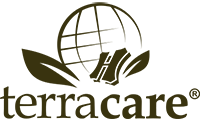Product of nature: leather – but sustainable!
Animal protection and chemicals under control
VAUDE uses leathers for some shoe models and for gloves, e.g. for climbing. Leather is a highly functional natural product, a "renewable resource" that is bio-degradable. As a by-product of the food industry, leather is also ecologically very efficient in addition to its excellent technical properties.
Animal protection as a voluntary commitment
But, like any "industry", leather production also has its downside. Animal husbandry globally has unfortunately not always held the values that correspond to our understanding of animal welfare. Particularly in South America, land competition is a big problem - when, for example, tropical rain forests are cut down to provide pastures for cattle. Chemicals used in the tanning of leather that can be detrimental to the workers in the tannery, can also be found in the final product.
VAUDE has made a clear commitment for itself: we want to know where the leather in our products comes from and the conditions under which it is processed. Animal welfare, conservation and safe handling of chemicals are a priority for us.

Cowhide leather from Northern Germany
Starting with the Summer Collection 2016, VAUDE has used terracare® leather exclusively. Our supplier for shoe leather is a western German family-run business that takes its responsibility for people and nature very seriously. The firm is audited in accordance with the Leather Working Group Protocol and Terracare leather is certified with Best Class A. The raw materials for terracare® leather come exclusively from animals from registered farms in Northern Germany. The animals are transported gently over short distances to the slaughterhouse. The hides are left practically unpreserved as they travel to the tannery thanks to the short distances, which saves the environment from large amounts of salt.
Only safe chemicals
For every kilogram of raw hide, the tannery needs about 500 grams chemical additives for tanning. After production, these substances can be found either in the leather or in wastewater. Clearly, absolute care has to be taken here and only safe chemicals used to prevent danger for people and nature.
You can’t see from a piece of leather how it was produced and what substances were used. The formation of the particularly hazardous chemical chromium VI is excluded in Terracare® leathers.
Tannery with water, sewage and energy management
The Leather Working Group also examines water consumption of a tannery in their audit to determine bronze, silver or gold status. Traditional tanneries need up to 450 liters of water to tan one square meter of leather. Terracare® leather only needs 95 liters of water per square meter and has thus attained Gold Certification.
Terracare® avoids unnecessary water consumption, and cleans and recycles process water. Before the waste water from terracare® goes to the municipal sewage treatment plant for biological cleaning, it is cleaned mechanically and chemically in an on-site sewage treatment plant. After that, the water is allowed into the natural water cycle – as clean as it was before use.
The energy required for the production of terracare® leather is obtained by an on-site thermal power station: generators use natural gas to produce electricity. 50% of the needed power is produced onsite. The remaining 50% is purchased as green electricity.
No wastage of by-products
In leather production, large amounts of by-products are accrued because only about 25% of a raw hide can be processed into leather. What happens with the remaining 75% of the hide?
At terracare®, all by-products are used:
The subcutaneous connective tissue is delivered to biogas plants. There, bacteria convert the skin oil into gas by fermentation.
Lime trimmings are converted into technical gelatin.
Split is converted into food products. Heinen is a food company that is certified by the EU.
Protein obtained from shavings is shipped to the fertilizer industry.
Chromium sludge is recycled in the construction of roads.
Starting with the Summer Collection 2017, VAUDE is also converting completely to a German supplier for goatskin: the renowned firm Gerecke.
| GRI: | G4-EN1 |
| GRI: | G4-PR6 |






